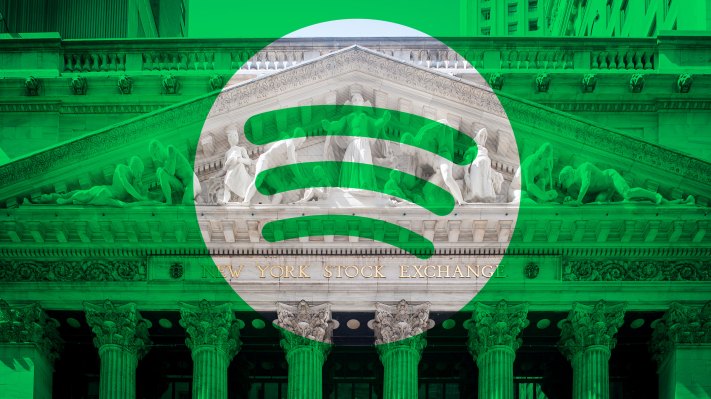Spotify released financial guidance ahead of its public debut planned for early April.
It’s an unconventional move, but the music streaming service isn’t doing a traditional IPO. It’s not raising money and will instead be doing something called a “direct listing,” with insiders selling shares.
This changes up the process, so Spotify decided to announce its business predictions ahead of time. Annual forecasts are something companies typically issue during quarterly earnings reports.
Spotify says it is expecting between 198 million and 208 million monthly active users by the end of its fiscal 2018 year. This is an increase of 26-32 percent from last year.
It believes that between 92 million and 96 million of these users will be paid subscribers, an increase of 30 to 36 percent compared to the previous year.
The company also says that it will have between €4.9 billion and €5.3 billion in revenue for this year, or $6.1 billion to $6.6 billion. This is an annual growth rate of 20 to 30 percent, beneath its 39 percent growth for the previous year. Public investors often pay close attention to the rate of growth.
Spotify is expected to go public on Tuesday, April 3. There’s no IPO and no investor roadshow. It will be comparable to a pre-IPO secondary transaction with individual sellers transacting with prospective buyers.
Spotify claims that it is doing this so that employees can sell right away, without a lock-up period. Most companies require employees to wait about six months before they can sell shares.
It also helps democratize the process, because the exclusive group of institutional investors and others who typically get in on the ground floor of IPOs won’t get early access.
But critics say that the standard IPO process is designed to minimize volatility in the early days of trading. Large IPO buyers can serve as an anchor by buying a lot of stock and holding positions for a while.
Spotify doesn’t say that debt terms were a motivation, but there has been speculation that this unique transaction was initially designed to avoid cumbersome obligations, which have now been resolved.
It’s also possible that it has a different philosophy because it’s a European company and the current IPO process is a uniquely American approach.
Apart from the unconventional listing, the investor community has mixed opinions on whether the stock market will like Spotify’s business. Some are expecting the stock market to value it more like Netflix, due to its licensing agreements with content creators — whereas others think the struggles of competitor Pandora are a bad sign.
